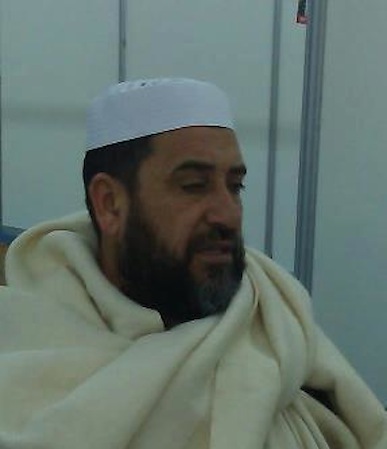By Taher Zaroog.
Misrata, 26 January 2013:
A member . . .[restrict]of Misrata local council was murdered today, Saturday, as he was leaving a city centre mosque after Dhuhr prayers. According to eyewitnesses, two men in a Hyundai Sonata car shot at Sheikh Mohamed Ben Othman at around 1.30pm as he left the Ras Amar mosque. The mosque is by the main polyclinic, Mujama Ayadat, in central Misrata.
It is the fourth significant killing in the city in just under a fortnight, and the third in three days. On 15 January, the imam of Misrata’s Omar Ibn Khatab mosque, Sheikh Fakhri Hussein Jahani was killed when a grenade was thrown at him as he was leaving the mosque after Maghreb (sunset) prayers.
On Wednesday night, shortly after 10 pm, three grenades were thrown from a passing car at a security building in the town, killing one man, named as Wahib Karim, and wounding two others, one of them seriously. The building serves as a joint command and communications centre for the SSC, the Libya Shield and local security forces.
Shortly afterwards, a police officer, named as Walid Shahoot was killed when his patrol was shot at in the city.
Earlier this month two Egyptian Christians were killed when a Coptic church in Dafniya outside Misrata was bombed.
The latest victim who represented the Azzarouq district, had been active on the council and was involved in particular in the reconciliation process. He was a member of the Muslim Brotherhood.
His killing has stunned Misratans. The city has until now has been a model of law and order in Libya and Ben Othman was regarded as a conscientious and hardworking figure, although respect for Misrata local council has been falling in recent weeks because of splits and its limited achievements. The head of the local council, Salim Beit Almal, also a member of the Brotherhood, resigned earlier this month, the second council leader to quit in 11 months.
Security had already been stepped up in the city following Wednesday’s two killings. At main street intersections, Libya Shield forces have joined the police and there are now two or three armed military vehicles stationed, with high-calibre weapons mounted on them.
There appears little to connect any of the killings and the authorities were baffled as to possible perpetrators and their motives even before today’s latest assassination. The imam killed on 15 January was viewed as a Salafist who had campaigned against what he called “fake” Salafists — people jumping on the bandwagon to gain local clout — but otherwise there are no leads.
However, it is being suggested that Wednesday’s two attacks may have been drugs-related.
Following them, one major Misratan revolutionary threated to impose a curfew in the city. Mohamed Al-Qanduz, who was spokesman for the Fourth Libyan Shield Force, issued a strong statement on his Facebook page warning that he and others “would use force” to impose security. [/restrict]









